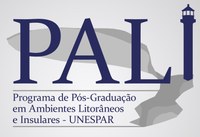The global scenario points to constant threats to coastal and insular ecosystems, stemming from human activities, culminating in major environmental and social impacts. Added to this is the constant threat of climate change, which imposes a new dimension on socio-environmental impacts and the integration of knowledge from different areas.
In this context, the search for scientific knowledge related to the understanding natural dynamics and their connection with human communities becomes a continuous quest for the balance in the coexistence of these components, as well as the recognition of opportunities. Due to the interdisciplinary nature of environmental sciences, it is recognized that problems are complex systems, in which processes of different rationalities, orders of materiality, and space-time scales intervene, ultimately generating synergy.
Thus, the Graduate Program in Coastal and Insular Environment seeks, through the interdisciplinary study of pristine or anthropogenically influenced ecosystems and their various components, to promote and foster the conservation and sustainable use of the environment, allied to the essential process of environmental education and the training of educators at all levels.
The studies developed by the program's master's candidates take an innovative approach to the diagnosis, prognosis and mitigation of environmental impacts, with the aim of developing knowledge for the sustainable use of natural resources, planning, management, and socio-environmental education.
A real scientific debate depends on the training of coherent and aware professionals. In the pursuit of balance between environmental quality and sustainable human development, education and awareness must be the foundation to mitigate impacts in an emerging future and to promote adaptation actions by societies. Therefore, training professionals with this knowledge and the ability to teach on environmental issues is urgent.
A real scientific debate depends on the training of coherent and aware professionals. In the search for a balance between environmental quality and sustainable human development, education and awareness must be the basis for mitigating impacts in an emergency future and promoting actions to adapt societies. Therefore, training professionals with this knowledge and the ability to teach on environmental issues is urgent.


